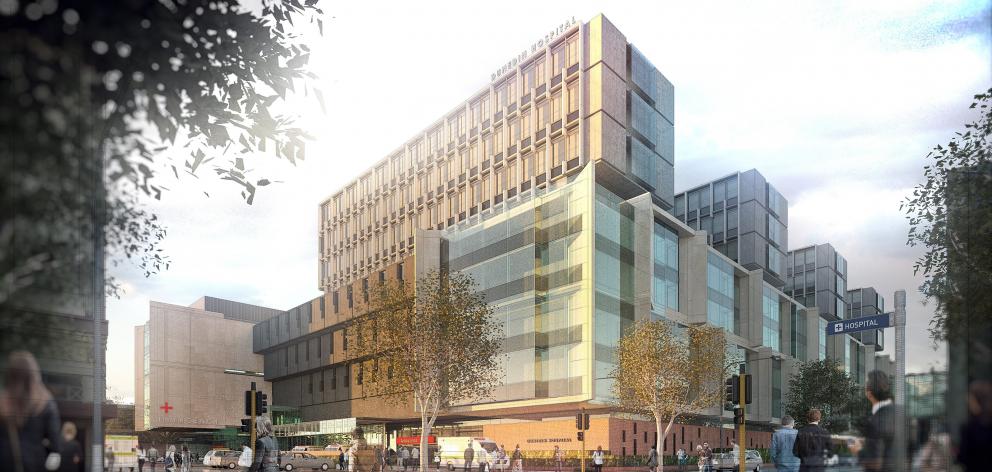

Final decisions on the tendering, or procurement process, are yet to be made for the hospital build but it faces a multitude of hurdles, as construction companies around the country struggle with securing jobs at the right price.
Fletcher Building, former Hawkins Orange-H Group and Ebert Construction are the highest profile companies to fall foul of tendering processes gone wrong. Ebert is in an estimated $40 million receivership and Orange Howes $30 million.
Southern Partnership Group chairman Pete Hodgson, interviewed about the tendering process yesterday, said there was neither a main contractor, nor potential consortium of companies in New Zealand, to undertake the job.
''There's no current company in New Zealand who is able to do the main contract.
''However, it's likely the Dunedin hospital campus, comprised of several buildings, will see a great deal of subcontracting activity,'' he said.
The hospital's construction is expected to take seven to 10 years, with a life-span expectation of 40-50 years.
''I'm confident of maximising opportunities for Dunedin and New Zealand businesses,'' Mr Hodgson said.
He highlighted that, ultimately, the tendering/procurement would not be decided by Southern Partnership Group, but the Ministry of Health, and its only recently appointed project directors.
He said the tendering process had about six options, including whether to tender ''phase by phase'', or look at fixed-price contracts - ''they're decisions we've got to be looking at now''.
He did however rule out ''design and build'' contracts as an option, as one single company did not have the architectural capacity to undertake such a large job.
When pressed about not hiring a New Zealand main contractor, he noted the country's largest firm, Fletcher Building, was not interested in building hospitals, which Fletcher had separately confirmed with the ODT in recent weeks.
''It's time to get that out there and have that discussion publicly,'' Mr Hodgson said of who could be a main contractor.
Over a two-year period, construction giant Fletcher Building project-managed its way into $950million of losses, largely on the back of fixed-price contracts on jobs worth hundreds of millions, including the Auckland convention centre and Christchurch's justice precinct.
Mr Hodgson noted a 62,000sq m acute services building in Christchurch, worth $463million, was being built by an Australian listed company, which had construction interests across the southern hemisphere.
Earlier this week, Civil Contractors New Zealand's chief executive Peter Silcock said large-scale builds were intended to serve New Zealanders for generations.
''Taking a lowest-cost approach to these projects will simply add maintenance and remediation costs down the line,'' Mr Silcock said.
Construction industry specialist Jim French, of fleet management company Teletrac Navman, said it was unlikely a hospital build the size of Dunedin's could be undertaken on a fixed-price contract.
''The [profitability] expectations will be higher for the main contractor, given it will be such a long job,'' he said.
Over seven to 10 years, there would be fluctuations in material and staff costs, interest and inflation rates, immigration, fuel and potentially changes of government.
''If it was a fixed-price contract, it would have to be very high,'' he said.
Mr French said profit margins in the construction sector at present were about 4% to 7%, but if a main contractor found themselves at the lower end, ''they're going to hit headwinds pretty quickly''.
It was of little use to either the client or main contractor when jobs ground to a halt, as invariably it was more expensive to restart and complete.
Mr French believed a joint venture of New Zealand companies could take on the main contracting role.
While there was a global trend of foreign companies working offshore, Mr French said Australian companies were ''very busy'' with infrastructure projects at present.
He did not rule out a Chinese company showing interest, but also noted there was increasing interest in New Zealand from European companies.
The Southern Partnership Group secured two blocks of land in May between Castle and Cumberland Sts. An initial master site plan is expected to be unveiled and the first business plan nearing completion by October.












